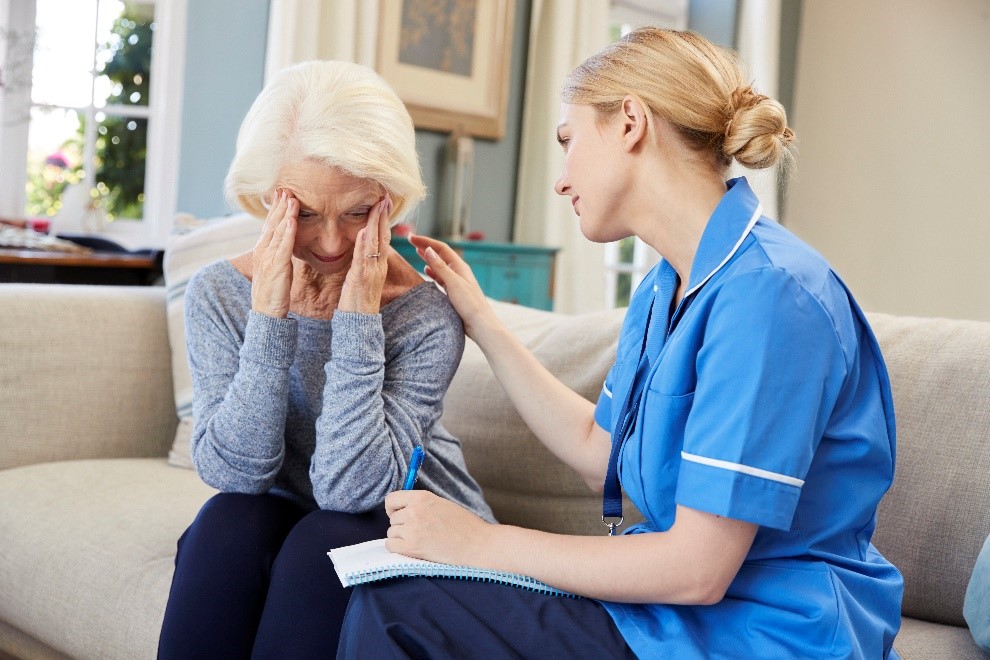
Eating Disorders in Seniors
Eating disorders can affect people of all ages, but some studies find body image disorders and eating disorders are becoming more prevalent in older adults. The challenge with eating disorders in seniors is they’re often overlooked or mistaken for other conditions. The end of February is National Eating Disorder Awareness week, making it a perfect time to learn about eating disorders and how they affect older adults.
Understanding Eating Disorders in Seniors
Many people associate eating disorders with teens and young adults coming into their bodies and becoming suspectable to the media’s perception of how a body should look. Some people overlook that the feeling of wanting to look and feel a certain way doesn’t vanish as soon as you hit a certain age. Having those feelings as a young adult can impact your mental and physical health as you age.
Even older adults who didn’t experience a negative relationship with their bodies at a young age can still develop body image and eating disorders later in life. Major life events can trigger eating disorders. For seniors, this can include retirement, menopause, the loss of a spouse, or the realization they may need help taking care of themselves. These events can often feel uncontrollable, and in an attempt to feel control of something, some seniors begin obsessively controlling what they eat.
Diagnosing Eating Disorders in Seniors
One of the most common signs of an eating disorder is sudden or extreme weight loss. When a young adult loses weight due to an eating disorder, it doesn’t take long for doctors to diagnose them. In older adults, weight loss could signal many other common medical conditions. Suppose a doctor observes an older patient losing a lot of weight. In that case, they’re typically going to assess if the patient has cancer, dementia, gastrointestinal issues, depression or hyperthyroidism as weight loss is a common sign among these conditions. It’s often only after a patient clears for not having one of these conditions that a doctor will begin examining for an eating disorder.
In addition to losing weight, other signs of an eating disorder in a senior could be bathroom behavior changes, increased sensitivity to cold, hair loss or dental damage. You may also observe changes in eating habits, such as wanting to eat alone or finding themselves busy whenever meals are being cooked and served.
It’s also vital to understand eating disorders aren’t just not eating or limiting how much one eats but can include overeating. For seniors looking to feel control, managing their food may result in eating too much or obsessively eating only certain food types.
Risks of an Eating Disorder
Eating disorders are dangerous at any age, but they are extremely concerning for older adults. Our bodies become less resistant with age, and if we don’t properly nourish our bodies, it can lead to serious health concerns such as organ failure and malnutrition. Seniors who experience complications due to eating disorders also a more challenging time recovering, resulting in a snowball effect of health conditions.
On the flip side, overeating can lead to several health concerns, the most concerning of which is obesity. Gaining too much weight puts a strain on the body’s organs and is one of the leading risk factors for heart disease and diabetes conditions.
Treatment for seniors with an eating disorder may be more complicated than a younger adult. They’ll often need a mix of therapeutic, nutritional, and medical assistance to safely change their eating habits. If you observe signs of an eating disorder in your loved one, talk to their primary care physician about ways to help.
If you or a loved one struggles with an eating disorder, the Visiting Angels Daphne team can help. Our compassionate caregivers can provide healthy meal preparation and work with clients to build healthy eating habits. Caregivers can also provide transportation to and from doctor’s appointments and help out with tasks around the house such as laundry or vacuuming. Our Daphne office serves those in Baldwin County and the greater Mobile area. If you’d like to schedule a free consultation and learn more about our services, please give us a call at 251.517.9700.
